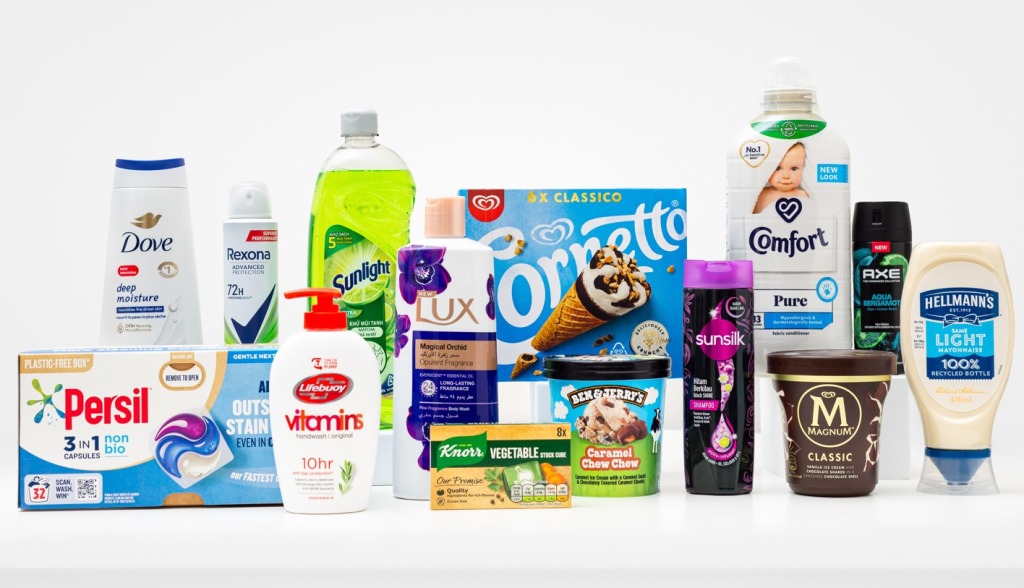
Consumer interest in holistic wellness products that nurture both body and mind has never been stronger. In fact, this growing demand is reshaping the personal care and beauty industry. People want products that don’t just clean or moisturize but also help them feel good, look good, and support their emotional wellbeing. Recognizing this shift, Unilever has been investing heavily in scientific research, particularly in an area known as neurosignalling, to develop a new generation of products that deliver benefits beyond the skin.
We sat down with Timo Giesbrecht, Sensory Perception & Neuroscience Lead in Unilever’s R&D division, to explore how this cutting-edge science is fueling innovation across the company’s personal care brands and what it means for consumers seeking wellness-driven products.
A Market Shaped by Wellness
The wellness economy is booming. In the United States alone, consumers spend an astonishing $1.8 trillion each year on wellness products and services, ranging from nutrition and fitness to beauty and self-care. Nearly half of Americans—around 45%—say they are actively investing in practices or products tied to self-care and emotional wellbeing.
This trend is reflected across the personal care space. Today’s consumers no longer view body washes, shampoos, or moisturizers as routine hygiene products; instead, they see them as part of a broader wellness ritual. They expect brands to deliver superior performance, tailored experiences, and emotional benefits that align with their personal values and lifestyle needs.
One of the brands at the forefront of this movement is Olly, Unilever’s wellbeing brand. Recently, Olly launched a line of mood-boosting body washes designed with fragrances scientifically proven to influence emotional states. This launch illustrates how Unilever is translating neurosignalling science into real-world innovations.
What Exactly Is Neurosignalling?
Neurosignalling refers to the process by which neurons—nerve cells in the brain—communicate with each other through complex networks of electrical and chemical signals. These interactions are the foundation of how humans perceive, think, feel, and act.
By measuring and tracking these signals, researchers can gain insights into how people emotionally respond to sensory experiences such as smell, touch, or sound. Neurosignalling has become the scientific foundation for neurocosmetics, a new field in beauty and personal care focused on creating products that not only improve skin health but also directly influence emotional states.
“At Unilever, neurosignalling allows us to generate evidence-based insights into the emotional benefits of our products,” explains Giesbrecht. “It helps us understand how certain fragrances or textures impact mood and wellbeing, enabling us to design personal care products that do more than clean—they also uplift.”
Why the Mind–Skin Connection Matters
The relationship between emotional wellbeing and skin health, sometimes referred to as psychodermatology, has gained significant attention in recent years. The global pandemic accelerated consumer awareness of this link, with many people turning to self-care rituals to regain balance in their daily lives.
Post-pandemic, there is a heightened desire for holistic care solutions that combine beauty, wellness, and emotional benefits. Consumers increasingly seek products that not only improve appearance but also reduce stress, support relaxation, or boost confidence.
Unilever’s research shows that people are more motivated than ever to choose personal care products that meet both functional needs (such as cleansing or moisturizing) and emotional needs (such as relaxation or invigoration).

Neurosignalling in Action: From Lux to Olly
Unilever has already integrated neurosignalling science into some of its most recognized brands.
- Lux Magical Orchid Shower Gel was one of the first body washes in the neurocosmetic space. Its fragrance was proven to boost consumer confidence in as little as 100 milliseconds—literally the blink of an eye. Using neurosignalling, researchers demonstrated that participants’ brains responded more positively to images of themselves when exposed to the Lux fragrance.
- Building on this success, Olly body washes have been developed with four mood-boosting fragrance blends: Renew, Revive, Awake, and Bright. Each was rigorously tested using neurosignalling techniques to validate that the scents triggered measurable emotional responses.
These product innovations illustrate how Unilever is moving from traditional claims about fragrance and mood to scientifically validated evidence of impact.
Measuring Mood: The Science Behind It
How does Unilever know these products are affecting mood in measurable ways? The answer lies in electroencephalography (EEG), a non-invasive technique that captures brain activity with millisecond precision.
EEG works by detecting tiny electrical signals—known as brain waves—that neurons use to communicate. For Unilever’s testing, researchers analyzed different frequency bands of brain activity, including:
- Alpha power, which reflects relaxation and calmness.
- Beta power, which indicates higher levels of alertness and energy.
- Gamma power, associated with cognitive processing and attention.
By mapping these responses, scientists could identify exactly how specific fragrances influenced participants’ emotional states. For example, one fragrance blend might increase Alpha waves, signaling relaxation, while another could boost Beta activity, linked to energy and invigoration.
What Consumers Want Most
Through extensive consumer research and social listening, Unilever has identified the emotional benefits most in demand. Consumers are particularly interested in products that support:
- Better sleep
- Stress relief and relaxation
- Energy and focus
- Recovery and resilience
“Everyone’s wellness journey looks a little different,” says Giesbrecht. “But what unites consumers is their desire for products that adapt to their needs in a given moment—whether that’s winding down after a long day or finding a boost of confidence before an important meeting.”
Scientific Leadership and Partnerships
Unilever has positioned itself as a leader in neurocosmetic research by partnering with top global institutions, including the University of Liverpool, Utrecht University, and the Monell Chemical Senses Center. These collaborations have enabled the company to publish more peer-reviewed studies in this field than many of its main competitors.
Giesbrecht highlights the importance of this leadership: “Our commitment to publishing and peer review ensures transparency and scientific rigor. It builds trust with consumers and reinforces the credibility of our product claims.”
Why Focus on Fragrance?
While neurosignalling can be applied to multiple senses—such as touch or sound—Unilever has concentrated much of its research on olfaction, or the sense of smell. The reason is simple: smell has a unique and direct pathway to the brain’s limbic system, the region responsible for emotions and memory.
Unlike other senses, olfactory signals bypass many relay points in the brain and connect straight to areas linked with emotional processing. This direct access makes fragrance a particularly powerful tool for shaping mood and consumer experience.
To advance this work, Unilever has established a state-of-the-art fragrance hub at Port Sunlight in the UK. The facility combines expertise in neuroscience, fragrance design, and consumer testing to create next-generation scents that deliver measurable emotional benefits.




